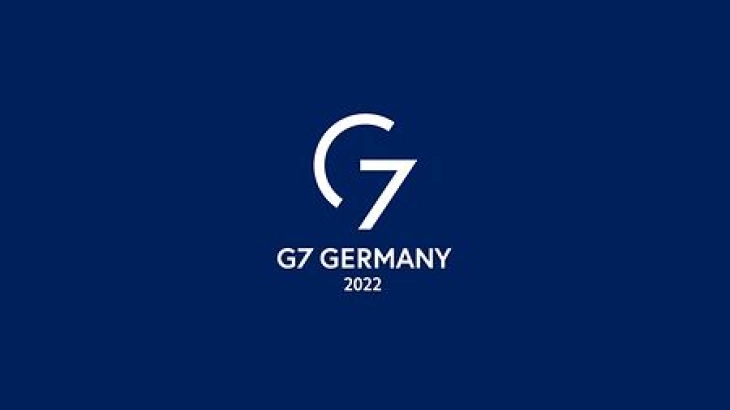G7 ministers warn Russia against further escalation in Ukraine

Berlin, 4 November 2022 (dpa/MIA) - The Group of Seven (G7) leading industrialized nations warned Russia on Friday against a further escalation of the war in Ukraine, condemning nuclear threats by Russian President Vladimir Putin.
"Russia's irresponsible nuclear rhetoric is unacceptable. Any use of chemical, biological, or nuclear weapons by Russia would be met with severe consequences," the G7 foreign ministers warned in a joint statement after two days of talks in the German city of Münster.
At the same time, the ministers announced further support for Ukraine, aimed at helping the country prepare for the upcoming winter.
They said the G7 has set up a coordination mechanism to help Ukraine "repair, restore and defend its critical energy and water infrastructure."
Putin has been targeting Ukraine's energy infrastructure in particular, as winter nears.
Besides Germany, which currently holds the G7 presidency, the group consists of Britain, Canada, France, Italy, Japan and the United States.
The ministers, together with their Ukrainian counterpart Dmytro Kuleba, who dialled in to the talks, condemned Russia's recent escalation, including attacks on civilians and civilian infrastructure such as energy and water facilities.
"Through these attacks, Russia is trying to terrorize the civilian population," their statement said.
Russia, as well as countries supporting the war militarily, would be subjected to further "economic costs," they added, warning Belarus in particular of "overwhelming additional costs" if the country becomes more directly involved.
The ministers also took aim at Russian disinformation, rejecting Moscow's false claims that Ukraine was preparing a dirty bomb. Their statement referred to the findings of the International Atomic Energy Agency (IAEA) that these allegations were baseless.
The G7 ministers also discussed developments in Iran, condemning "the brutal and disproportionate use of force against peaceful protesters and children" in their statement.
They urged the Iranian authorities to "ensure accountability for perpetrators of human rights violations and abuses."
They indirectly threatened to impose further sanctions on Iran for supplying Russia with weapons, referencing "Iran's provision of Unmanned Aerial Vehicles (UAV) to Russia." Tehran denies having supplied Moscow with weapons.
The communications director of the US National Security Council, John Kirby, recently said there were still concerns that Iran could supply Moscow with weapons such as surface-to-surface missiles, in addition to combat drones.
The ministers strongly condemned "Iran's continued destabilizing activities in and around the Middle East," including "activities with both ballistic and cruise missiles," as well as the supply of drones and advanced weaponry to state and non-state actors.
"Such proliferation is destabilizing for the region and escalates already high tensions," their statement said.
Meanwhile, Japan spearheaded a call for China to "live up to its responsibility as a great power", in a statement by Japanese Foreign Minister Yoshimasa Hayashi. He called on the G7 to exert its influence on Beijing.
At the same time, Hayashi added, it was necessary to clearly convey to China that they were "ready to cooperate" in areas where it was possible.
Japan is the only Asian country in the G7.
His statement went on to say that the G7 rejects any unilateral attempts to forcefully alter the international order, in reference to China's claim to Taiwan and pursuit of territory in the East Sea, also known as the Sea of Japan, and the South China Sea.
G7 ministers called for "a peaceful solution to the problems between China and Taiwan."







